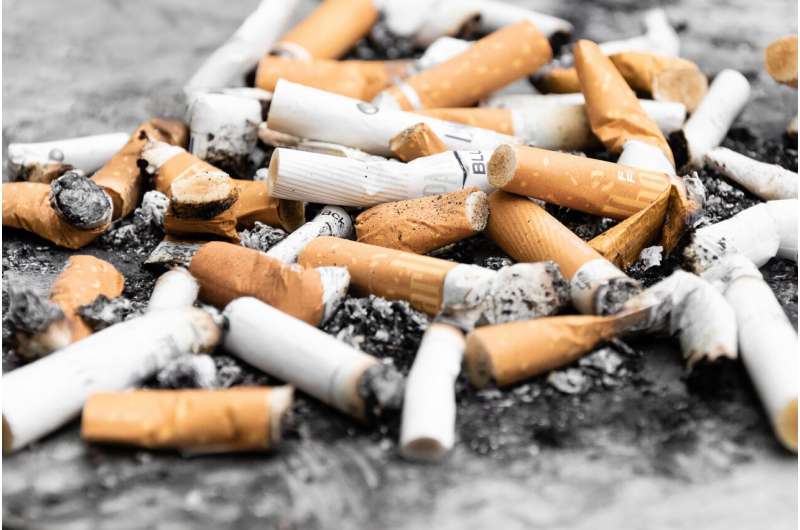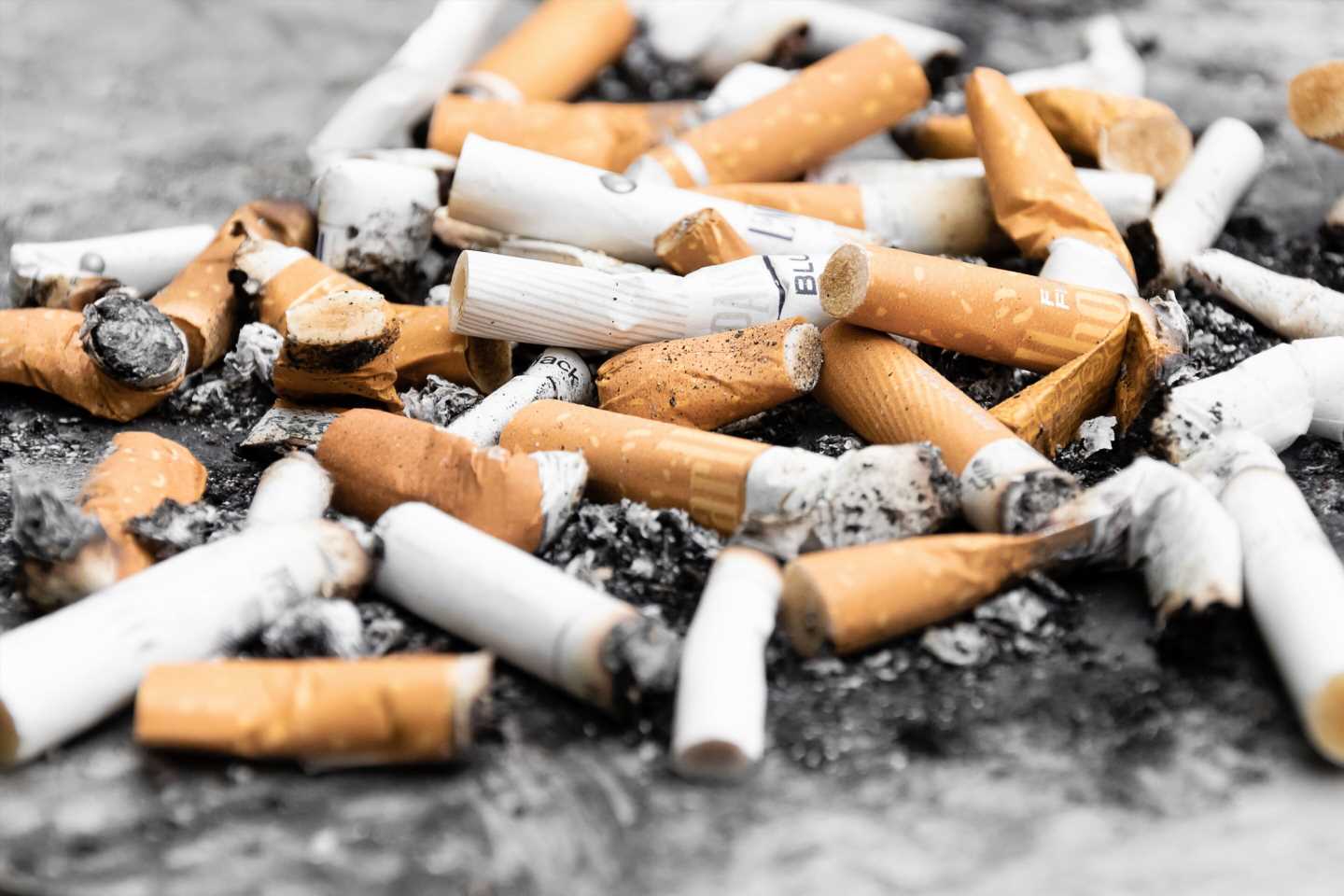
The U.S. Food and Drug Administration (FDA) released a proposal last week to ban menthol cigarettes, which account for over a third of cigarette consumption. They say the move to eliminate menthol—a minty flavor that reduces irritation and makes cigarettes more addictive—from the market will cause a 15% reduction in smoking and could save over half a million lives over the next 40 years.
If implemented, the ban would disproportionately impact Black smokers, 85% of whom prefer menthol cigarettes as a result of years of targeted marketing from the tobacco industry, according to a national survey on drug use and health from 2018.
Still, some Black leaders have spoken out against the ban, arguing that it will cause criminalization that will target Black populations. But two experts from Northeastern say it is an overdue measure that will save lives, and that invoking suggestions of possible police brutality in today’s social climate is another tactic for Big Tobacco to continue selling products to that targeted audience.
Menthol has been marketed directly to Black Americans for over half a century, says Susan Mello, associate professor of communication studies at Northeastern. The flavor was added to cigarettes in the 1920s, she says, though it only became popular in the 1960s, when filters were also added to cigarettes. Around that time, tobacco companies started marketing the flavor to Black populations, with great success. “As one company did well, other companies caught onto that, and started adding menthol to their product lines,” she says.
Their marketing tactics were pointed, targeting segregated colleges and universities, Black periodicals, and Black radio shows. The tactics have continued to this day, Mello says, as companies place ads in Black communities, use Black models, and associate cigarettes with hip-hop culture. “They just completely infiltrated the culture and the community,” she says.
The tobacco industry has even managed to convince tobacco users that menthol is a safer option than regular cigarettes. On top of very specific color choices and using the now-banned words like “lite,” “slim,” (a term used to target women) or “mild,” tobacco companies have marketed menthol as healthier, with great success. “They’ve built on cultural perceptions among African-Americans of menthol as being medicinal,” Mello says, noting the association between menthol and other products like lozenges and ointments, which also contain the ingredient. Some menthol cigarettes have even been marketed as “plant-based” in order to associate them with eco-friendly and wellness culture.
The truth, Mello says, is that menthol cigarettes are actually more dangerous than regular ones. “Menthol makes it easier to start smoking,” she says, especially for young adults who are trying cigarettes for the first time. “It feels easier to smoke more frequently, which expedites your dependence on nicotine, and also can mask early signs of respiratory illness.”
Other cigarette flavors have also been linked to higher usage among young adults, leading to the FDA’s 2009 decision to ban them from cigarettes. But menthol remained on the market, a decision that Richard Daynard, Northeastern University Distinguished Professor of Law, says was in part due to opposition from some Black leadership, including the NAACP. The tobacco industry’s argument, Mello says, was that the decision would discriminate against Black Americans who were disproportionately addicted to menthol cigarettes.
This new proposal, then, is “long past due,” Daynard says. “The idea that the FDA has had the power since 2009 to ban menthol cigarettes and is only acting now in 2022 means that they’ve let 13 years slip, but better late than never.”
For their part, the NAACP now “applauds” the ban, but some other Black leaders still oppose it, stating that it will lead to increased criminalization of Black communities. While the FDA statement specifies that the new rules “do not include a prohibition on individual consumer possession or use,” leaders such as the Rev. Al Sharpton and U.S. Rep. Donald McEachin of Virginia have warned of potential “serious economic and criminal-justice implications” for Black Americans. The ACLU also warned that the ban “will lead to criminalization.”
Mello acknowledges these potential challenges. “They’re not wrong,” she says. “These are all real problems that also need to be taken into consideration, but just because it’s going to be a hard transition, doesn’t mean it’s not the right path to take.” She emphasizes that putting cessation programs into place needs to become a priority to help people, especially African-Americans, quit smoking.
Meanwhile, Daynard disagrees that the ban could have criminal-justice consequences for Black Americans. “It’s wrong,” he says. “There’s no ban on individual possession of the cigarettes. The whole thing is a smoke screen, as it were.” He points out that Sharpton is “on the payroll of the tobacco industry,” specifically RJ Reynolds, a principal tobacco manufacturer. In addition, McEachin represents Richmond, Virginia, the site of Marlboro’s biggest factory. “He’s probably the rare case where a substantial proportion of his constituents actually work for the tobacco industry,” Daynard says. A recent Los Angeles Times report shows that tobacco companies support lobbyists, consultants, and protesters in an effort to fan fears that a ban would lead to increased police brutality.
Rather than cause violence, Daynard says, the ban will certainly lead to fewer people smoking, and will save lives. The FDA’s estimates for how many lives will be saved “sound very reasonable, possibly even conservative,” he says.
The changes won’t happen overnight, though, as the tobacco industry will likely fight the ban in court before it can be implemented.
Source: Read Full Article
